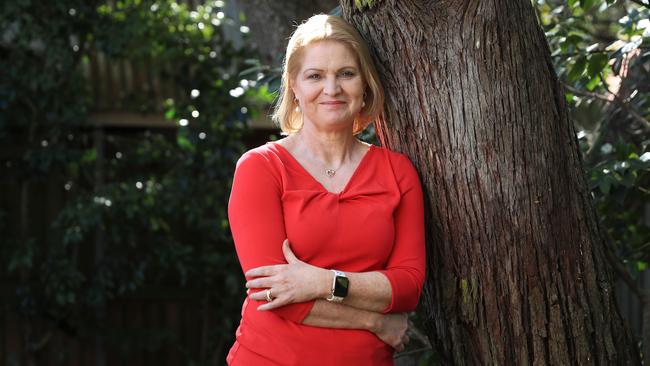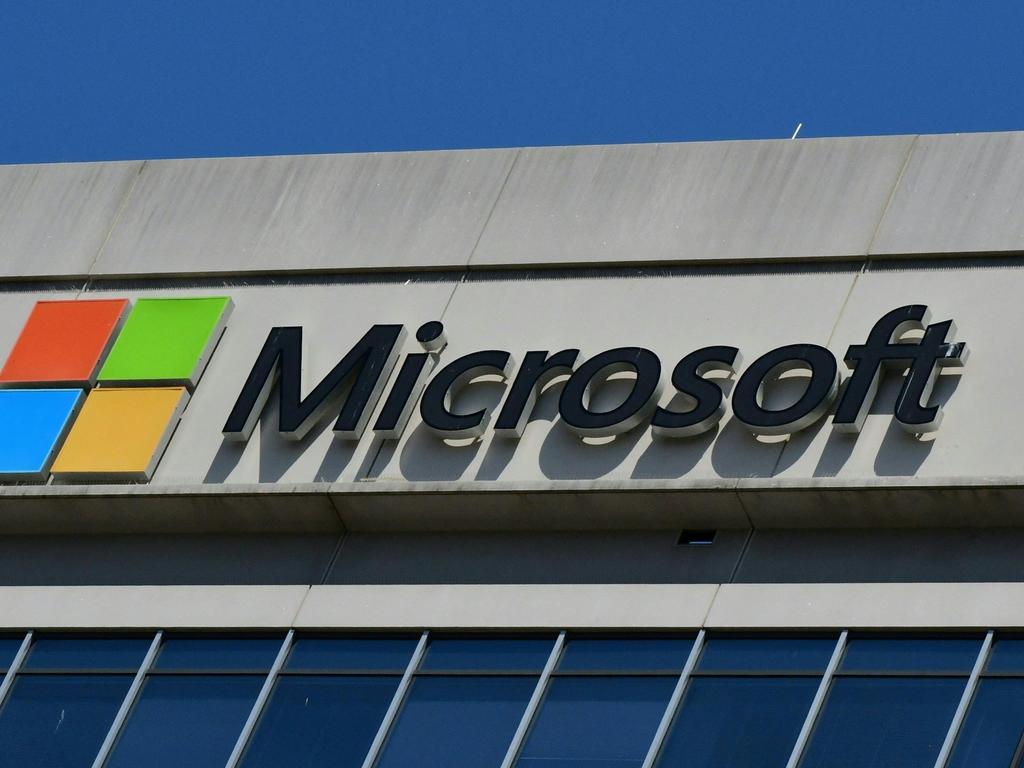No going back from data revolution after Covid, says IBM boss Katrina Troughton
Katrina Troughton has run IBM Australia for two years. She says in just a few weeks Covid-19 exposed the role that IBM could play.

The year 2020 changed business forever: hordes of unlocked data drove new growth, the ‘‘new collar’’ worker emerged and cybercrime became a threat that must be fought with Zero Trust.
This year, Big Blue itself is changing, splitting off its $19bn managed services business while core IBM sets its sights on being the leader in hybrid cloud. Quite an ambition when you think of competitors like Microsoft and AWS.
Katrina Troughton has run IBM Australia for two years and right through the pandemic. She says in just a few weeks Covid-19 exposed the role that IBM could play. “It was so obvious that clients who had invested in digital technology and cloud and automation in particular could find new ways to operate a remote workforce, extend services to clients and importantly just keep going. It started to expose leaders to the digital plumbing in the organisation. We were really brittle with some of our supply chains.”
Today, says Troughton, recovery and growth comes through unlocking and managing data to use it differently. “Take the work we have done in government on how we ensure you’ve got capability across the Australian Immunisation Register and that the platform can scale as we do roll out vaccines.
“Pre-Covid, being a fast follower was good. Today change and fast change is better,” she says.
In business IBM worked with Telstra in its pre-emptive response to determine where service might be needed in the pandemic.
“Where do I move my spare parts to, because I am so distributed? Unlocking the data on performance and other indicators enabled us to use AI to help them make decisions on where equipment should be to do pre-emptive support or pre-emptive maintenance,” she says.
IBM’s big bet is on hybrid cloud and artificial intelligence. That means computing, storage and services for both on-premise infrastructure, and private and public cloud services.
In big news, IBM global is splitting off its $19bn managed services business into a new company. Kyndryl will run and maintain vast essential services like banking mainframe infrastructure.
Martin Schroeter, who missed out on the top job at IBM in 2020, will run Kyndryl globally.
One of Troughton’s predecessors at IBM Australia, Kerry Purcell, will return from Japan to run Kyndryl’s Australian business.
Katrina Troughton says the spin-off is all part of a deliberate strategy to build out how IBM becomes the leader in digital, cloud and AI. “It started back with the work around tech and cloud, then partnering with Red Hat, the acquisition out Red Hat and the creation of the hybrid cloud platform we offer clients today based on Red Hat OpenShift,” she says.
IBM competes with public cloud service providers like AWS and Microsoft Azure. “It’s about being an open hybrid cloud platform,” says Troughton. It means IBM can take solutions for clients across other cloud platforms.
“As clients are going through such big transformation, they need to run across that whole hybrid cloud environment. It is the ability to manage one pane of glass,” she says.
“That is what differentiates what we have with our hybrid cloud platform based on OpenShift from a pure public cloud solution.”
There is no doubt IBM had a leading role fighting the pandemic. It helped launch the supercomputing consortium for capacity research to understand the virus and develop a vaccine. When the virus attacked Australia in early 2020, IBM worked with the Critical Care Consortium to bring results and treatments from around the world to emergency doctors who were largely flying blind.
“Science and technology, data at the core, hybrid cloud, we are never going to go back,” says Troughton. “You could say we are still working on the new way of working. We are not going to return from that.”
IBM is in the thick of the global debate around digital passports, developing a digital health pass to verify Covid-19 health credentials.
This includes “your test result, your vaccination status, for employees, customers, visitors that may enter sites like sports stadiums or planes”, says Troughton. She says verification can be important to how we reopen economies but stresses it remains a voluntary digital alternative as the debate continues.
Covid-19 has changed thinking on security. Working from home increases the threat “surface” and cyber-attacks are commonplace. In IBM’s latest data breach report released last week the average cost of a breach in Australia has gone up another 10 per cent.
“It’s up to $3.7m per incident – seriously important,” Troughton warns, “and the average time to detect and contain breaches increased by a whole week.”
This week’s Australian census is a reminder that even IBM can get caught out.
Five years ago the ABS running the census, supported by IBM, was embarrassingly hacked. “We understand our clients choose IBM not just for the tech or service we offer, but in the confidence that comes with having long-term trusted partnerships,” says Troughton. “It is about how you react and how you step up and continue in a trusted way to work and resolve situations.”
New since 2016 is the Zero Trust approach, which assumes identities or even the network itself might be compromised and relies on AI constantly to validate connections. In the IBM report, companies adopting Zero Trust are doing better on both costs and their ability to recover.
The response also demands people with skills to manage the incidents. For years the tech sector has relied on skills mobility, so the shutting of international borders has been a blow. “In Australia we need the right balance on shore with our clients, particularly where we are working with sovereign data and in the cyber areas where we are focused on ensuring we have the right balance of local and international.”
The problem has seeded out of the box thinking. Looking forward, says Troughton, traditional IT tertiary qualifications may not always be required.
Blue and white collar workers will be joined by ‘‘new collar’’ workers. “This is where with just the building of the right skills you can come into the workforce and start to build your skills up while you work. In areas like cyber we can get skills to a level that cyber operators and other key roles can be entry points into technology careers,” she says.







To join the conversation, please log in. Don't have an account? Register
Join the conversation, you are commenting as Logout